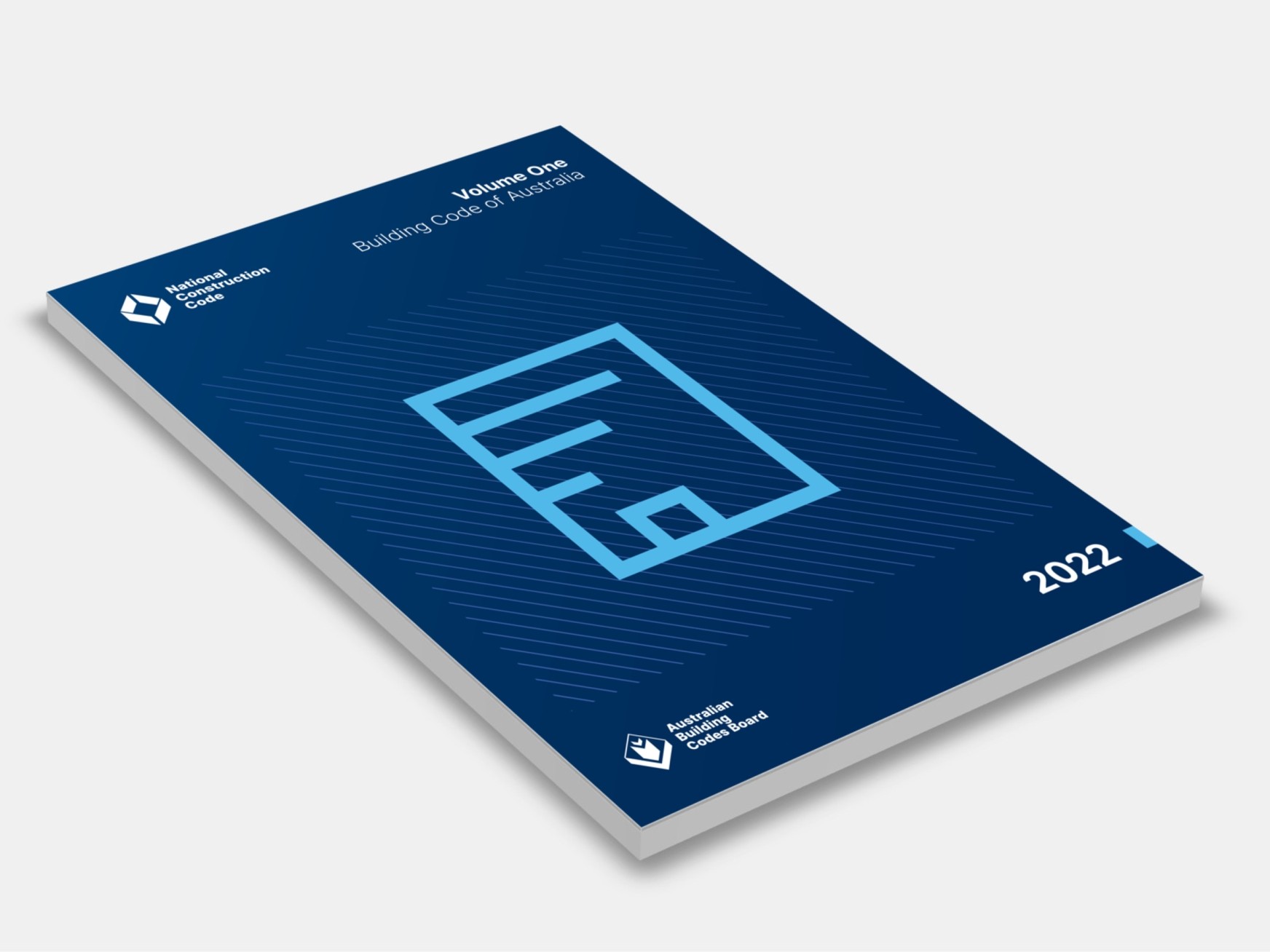News
Update on the NCC 2022
Update on the NCC 2022
Adoption of the National Construction Code (NCC) 2022 commenced in NSW from 1 May 2023. Other provisions (e.g. energy efficiency) will commence from 1 October 2023.
The National Construction Code (NCC) 2022 first became available on 1 October 2022 and includes the Building Code of Australia (Volumes One and Two) and the Plumbing Code of Australia (Volume Three).
Most of the changes to the NCC come into effect on 1 May 2023, including:
- Consistent structure and clause referencing system across all three volumes
- New Housing Provisions Standard to support the new NCC structure
- Amended provisions for the fire safety of external walls, including requirements that bonded laminate panels be mechanically fixed
- Enhanced waterproofing and weatherproofing provisions
- Enhanced provisions for residential energy efficiency and condensation management
- New requirements to facilitate the future installation of electric vehicle charging infrastructure in carparks.
- Adoption of the latest edition, or updated editions of a range of Australian Standards and other referenced documents.
Livable Housing
NCC 2022 contains new requirements for livable housing, however, these provisions will not apply in NSW at this stage. Volumes One and Two of NCC 2022 include a variation that specifies that the livable housing provisions do not apply in NSW.
Residential Energy Efficiency
In NSW, the energy efficiency and thermal performance of new residential buildings is regulated by the Building Sustainability Index (BASIX). Increased BASIX standards will apply from 1 October 2023.
Please see the questions and answers to the BASIX team at Department of Planning and Environment for clarification.
Q1: How long will transitional arrangements last for energy efficiency?
NCC 2022 will commence from 1 May 2023, transitional arrangements mean that provisions related to energy efficiency and condensation mitigation will commence on 1 October 2023.
Q2: Which of the NCC versions are we to follow 2019 or 2022?
If the development consent is given before 1 October 2023, current BASIX certificates are issued under version 3. They will be issued based on the new standards under version 4 from 1 October 2023.
Q3: When will the new BASIX energy efficiency and thermal performance standards for new residential buildings apply in NSW?
From 1 October 2023.
Q4: If a BASIX certificate is generated and the Development Application (DA) is lodged before 1 October 2023, what revision(s) of the BASIX certificate will follow the NCC 2019 (i.e., before 1 October 2023)?
Provided that the BASIX user can provide the DA lodgement number, when revising the certificate, NatHERS simulations (attached with the BASIX certificate issued before 1 October 2023) can be revised with the same version after 1 October 2023, if the software providers can provide access to the initial DA lodgement record.
Q5: What thermal mass solution is available for builders where the primary building methodology consists of a bearers and joists system, where they can't obtain a compliance rating in the NatHERS report?
A5: In relation to thermal mass – NatHERS simulations consider the R-value of the building frame in addition to the additional insulation to determine the heating and cooling loads of the proposed building.
More information about the increased BASIX standards is available on the NSW Planning Portal.
NCC 2022 Transitional Arrangements
NCC 2022 will be adopted by nationally on 1 May 2023.
State and Territory Building Ministers have agreed to transitional arrangements for the following specific requirements:
- New energy efficiency requirements commence 1 October 2023.
- From 1 September 2022 a three year transition period commenced to comply with the lead-free plumbing product requirements and concludes 1 September 2025. https://watermark.abcb.gov.au/certification/schedule-products
NSW NCC Timetable
The transitional arrangements will allow practitioners to continue using the relevant provisions of NCC 2019, until the end of the relevant transition period.
It has since been agreed by the Building Ministers to delay the adoption of NCC 2022 until 1 May 2023 in recognition of the COVID-19 pandemic, and the impacts to industry.
The NCC was initially released in April 2022 and was updated in light of more recent decisions by the Building Ministers and provides advice to NCC users for alternative expiry arrangements.
Key Changes in NCC 2022
Key changes to the NCC 2022 can be found using the following links below.
https://ncc.abcb.gov.au/ncc-2022-overview-key-changes-articles
List of amendments - NCC 2022 Volume One
For a complete list of amendments in Volume One, please use the link below.
https://ncc.abcb.gov.au/resources/videos/2022-ncc-seminars-volume-one-ncc-changes
List of amendments - NCC 2022 Volume Two
For a complete list of amendments in Volume Two, please use the link below.
More information on these changes is available on the ABCB website.
https://abcb.gov.au/news/2022/ncc-2022-here
Learn more about some of the key changes in NCC 2022.
Overview of changes – energy efficiency and condensation
Overview of changes – performance
Overview of changes – health and amenity
Overview of changes – structural safety
Overview of changes – plumbing and drainage
Overview of changes – fire safety
Overview of changes – access and egress
